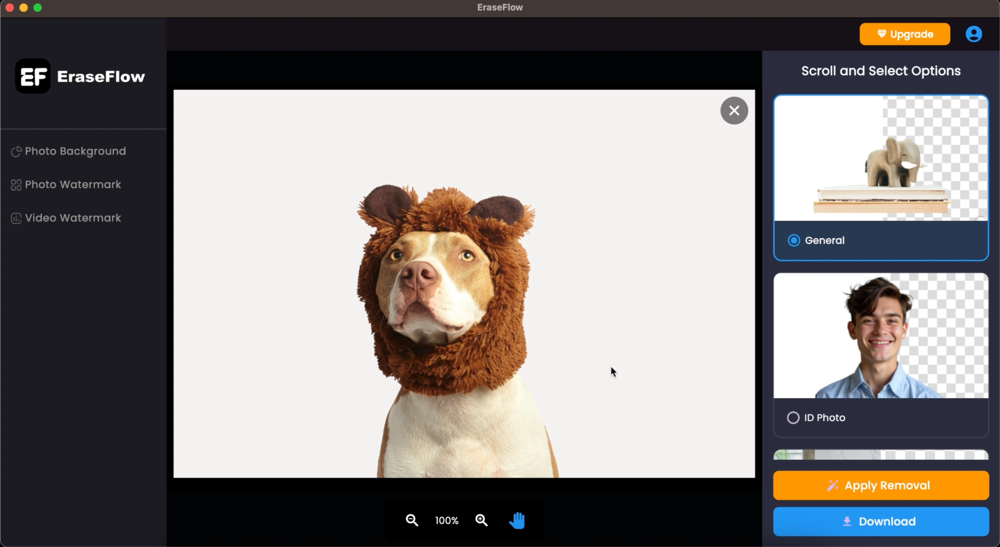Complete Guide to Customizing Document Background Colors in Microsoft Word
Creating visually appealing documents is essential in today's professional environment. Whether you're preparing a business proposal, designing a newsletter, or crafting a creative report, the background color of your Microsoft Word document can significantly impact its overall presentation and readability. This comprehensive guide will walk you through every aspect of customizing document background colors in Microsoft Word, from basic color changes to advanced design techniques.
Understanding how to effectively modify page backgrounds not only enhances the aesthetic appeal of your documents but also helps convey your message more effectively. We'll explore step-by-step instructions for both Windows and Mac users, discuss best practices for professional document design, and introduce you to complementary tools that can elevate your document creation process.
Understanding Document Background Customization in Word
Microsoft Word offers extensive background customization options that go far beyond simple color changes. The page background feature allows you to transform plain white documents into visually engaging presentations that capture attention and enhance readability.
Why Document Background Colors Matter
The choice of background color in your documents serves multiple purposes:
- Professional Branding: Consistent color schemes reinforce brand identity
- Visual Hierarchy: Different backgrounds help organize content sections
- Readability Enhancement: Proper contrast improves text legibility
- Emotional Impact: Colors evoke specific feelings and responses
- Document Differentiation: Unique backgrounds help distinguish document types
Step-by-Step Guide: Modifying Page Colors on Windows
Changing background colors in Microsoft Word on Windows is a straightforward process that can dramatically transform your document's appearance. Follow these detailed instructions to master page color customization:
Method 1: Using the Design Tab
Step 1: Launch Microsoft Word and open your document or create a new one.
Step 2: Navigate to the "Design" tab in the ribbon menu at the top of your screen.
Step 3: Locate the "Page Background" section on the right side of the Design tab.
Step 4: Click on "Page Color" to reveal the color selection menu.
Step 5: Choose from the available options:
- Theme Colors: Pre-selected colors that match your document theme
- Standard Colors: Basic color palette including primary and secondary colors
- More Colors: Access to the full color spectrum with RGB and HSL values
Advanced Color Customization Options
For more sophisticated background effects, Word offers additional customization features:
Fill Effects: Click on "Fill Effects" to access advanced options including:
- Gradient Effects: Create smooth color transitions
- Texture Patterns: Apply predefined textures like canvas, marble, or wood
- Pattern Designs: Use geometric patterns and designs
- Picture Backgrounds: Insert custom images as backgrounds
Mac Users: Customizing Document Backgrounds
Microsoft Word for Mac offers similar functionality with slight interface differences. Here's how to modify page backgrounds on macOS:
Mac-Specific Instructions
Step 1: Open your Word document on your Mac system.
Step 2: Click on the "Design" tab in the top menu ribbon.
Step 3: Select "Page Color" from the Page Background section.
Step 4: Choose your desired color from the available palette or click "More Colors" for custom options.
Step 5: Apply additional effects using the "Fill Effects" option if desired.
Removing and Resetting Document Backgrounds
Sometimes you may need to remove background colors or reset your document to its original state. This process is equally important to understand for maintaining document flexibility.
How to Remove Background Colors
Windows and Mac:
- Navigate to the Design tab
- Click on "Page Color" in the Page Background section
- Select "No Color" from the dropdown menu
- Your document will return to the default white background
Professional Design Best Practices
Creating professional-looking documents requires more than just applying random colors. Consider these expert recommendations for optimal results:
Color Psychology in Document Design
- Blue: Conveys trust, professionalism, and stability
- Green: Represents growth, harmony, and environmental consciousness
- Gray: Projects sophistication and neutrality
- White: Ensures maximum readability and clean appearance
- Warm Colors: Create energy and enthusiasm but use sparingly
Contrast and Readability Guidelines
Maintaining proper contrast between background and text colors is crucial for document accessibility and professional appearance:
- Ensure sufficient contrast ratio (minimum 4.5:1 for normal text)
- Test readability under different lighting conditions
- Consider colorblind accessibility when choosing color combinations
- Avoid overly bright or saturated backgrounds that strain the eyes
Advanced Background Techniques
Creating Gradient Backgrounds
Gradient backgrounds add visual depth and sophistication to your documents:
- Access Design tab → Page Color → Fill Effects
- Select the "Gradient" tab
- Choose from preset gradients or create custom combinations
- Adjust direction and intensity for optimal effect
Using Texture and Pattern Backgrounds
Textured backgrounds can add visual interest while maintaining professionalism:
- Select subtle textures that don't interfere with text readability
- Use patterns sparingly and ensure they complement your content
- Test printing results as textures may appear differently on paper
Troubleshooting Common Background Issues
Printing Considerations
Background colors may not print as expected. Here's how to ensure proper printing:
- Enable background printing in Word options
- Check printer settings for color accuracy
- Consider ink consumption for large background areas
- Test print a sample page before printing entire documents
Compatibility Across Versions
Ensure your background designs work across different Word versions:
- Save in compatible formats (.docx for modern versions)
- Test documents on different systems before sharing
- Provide alternative versions for older Word installations
Enhancing Documents with Professional Image Backgrounds

While Word's built-in background options are extensive, sometimes you need custom images or professionally edited backgrounds for your documents. This is where specialized tools become invaluable for creating truly outstanding document presentations.
When to Use Custom Image Backgrounds
- Corporate presentations requiring brand-specific imagery
- Marketing materials with product photography
- Educational documents with relevant visual content
- Creative projects requiring unique artistic elements
EraseFlow: Elevating Your Document Design Process

When creating professional documents that incorporate images, EraseFlow becomes an essential tool in your document creation workflow. This AI-powered background removal service enables you to create clean, professional images that integrate seamlessly with your Word document backgrounds.
How EraseFlow Enhances Document Creation
- Clean Product Images: Remove distracting backgrounds from product photos for catalogs and presentations
- Professional Portraits: Create consistent headshots for company directories and reports
- Seamless Integration: Generate transparent images that blend perfectly with any background color
- Brand Consistency: Ensure all images match your document's color scheme and style
- Time Efficiency: Process multiple images quickly for large document projects
Workflow Integration: Word + EraseFlow
Combining Microsoft Word's background customization with EraseFlow's image processing creates a powerful document design workflow:
- Design your document background using Word's color and effect options
- Process your images through EraseFlow to remove unwanted backgrounds
- Insert the clean, transparent images into your Word document
- Fine-tune positioning and sizing for optimal visual impact
- Export or print your professional-quality document
Industry-Specific Applications
Business and Corporate Documents
Professional business documents benefit from subtle background customization:
- Annual reports with branded color schemes
- Proposal documents with company-specific backgrounds
- Training materials with consistent visual identity
- Executive summaries with professional presentation
Educational and Academic Materials
Educational documents can use background colors to enhance learning:
- Course materials with subject-specific color coding
- Student handouts with improved readability
- Research papers with professional formatting
- Presentation slides with engaging backgrounds
Marketing and Creative Projects
Creative documents allow for more adventurous background choices:
- Brochures with eye-catching color schemes
- Newsletters with branded backgrounds
- Event invitations with thematic colors
- Portfolio presentations with artistic flair
Future Trends in Document Design
Document design continues to evolve with technological advances and changing user expectations. Understanding emerging trends helps you create documents that remain current and effective:
Digital-First Design Principles
- Responsive layouts that work across devices
- Interactive elements and hyperlinks
- Accessibility-focused color choices
- Sustainable design practices reducing printing needs
Conclusion: Mastering Document Background Customization
Customizing document background colors in Microsoft Word is a powerful skill that can significantly enhance your professional presentations and creative projects. From simple color changes to complex gradient effects, Word provides comprehensive tools for transforming plain documents into visually compelling communications.
The key to successful document design lies in understanding your audience, maintaining readability, and choosing colors that support your message rather than distract from it. Whether you're creating business reports, educational materials, or marketing documents, the principles and techniques outlined in this guide will help you achieve professional results.
Remember that great document design often involves combining multiple tools and techniques. While Word provides excellent background customization options, complementary services like EraseFlow can help you create the perfect images to accompany your carefully designed backgrounds, resulting in truly professional documents that make a lasting impression.
Enhance Your Document Images with EraseFlow
Take your Word documents to the next level with professionally processed images. EraseFlow's AI-powered background removal creates clean, transparent images that integrate seamlessly with any document background.
Process Your Images Now
Leonardo Rossi
May 31, 2025